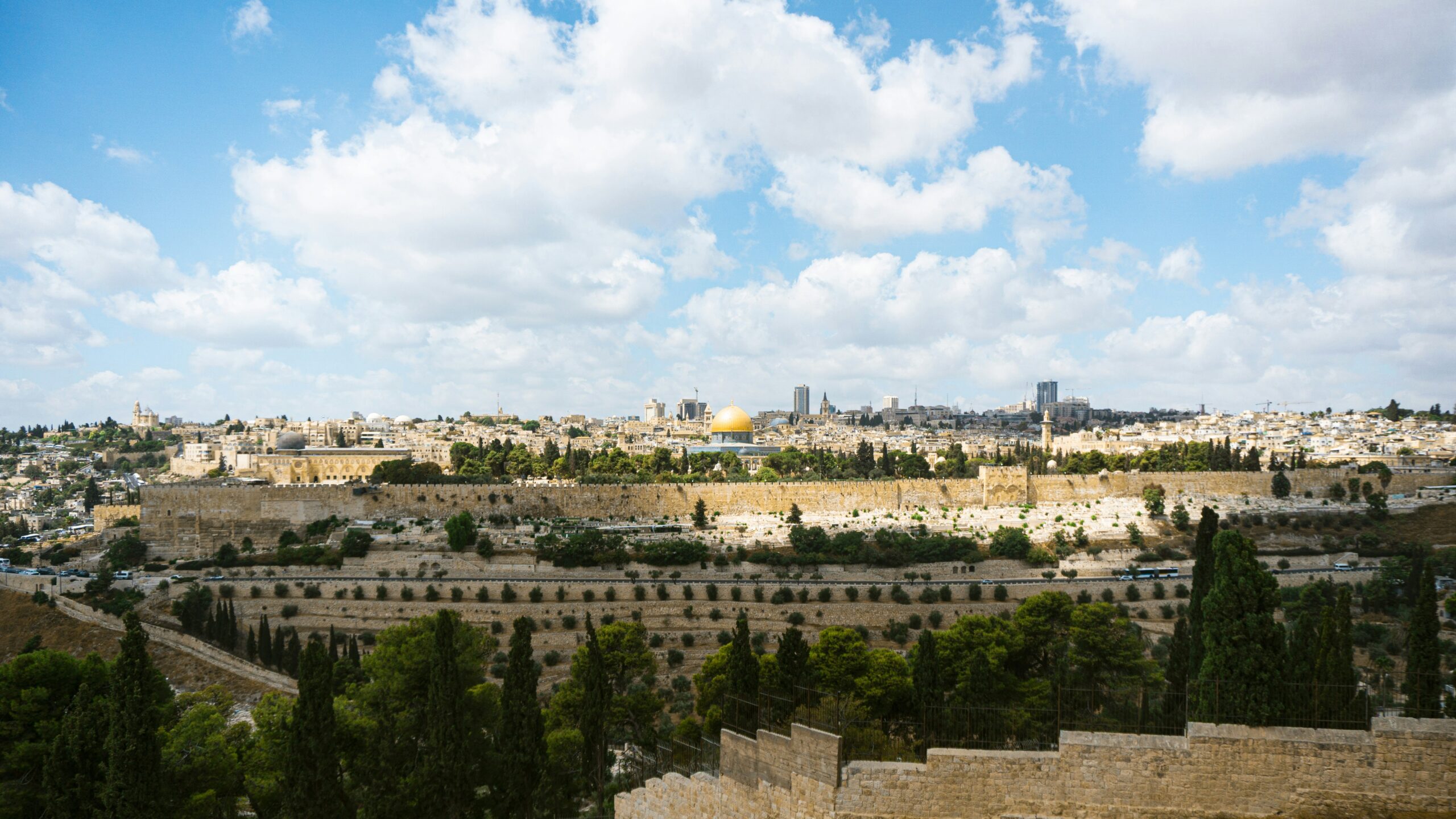
What hope for peace in the Middle East?
Firas Modad argues that the religious underpinning of Jewish and Muslim positions in the current conflict in Palestine and Lebanon makes peace a very distant prospect. But still there is hope.
If Israel ends the ongoing wars in Gaza and Lebanon, regardless of the fate of the captives taken on 7 October, Hamas and Hezbollah would rebuild to fight another day, with their objective unchanged – correcting what they perceive as the historic wrong and religious offence that is the establishment of the modern state of Israel.
Permanent War
The only way Jews can be sovereign in Israel/Palestine is to keep the three million Palestinians of the West Bank, the 2.3 million Palestinians of Gaza, and the 1.5 million Arabs of 1948 Israel weak and subjugated, or to expel them. Zionist leaders like Jabotinsky and Ben Gurion knew that the Arabs would always fight against Jews governing their land.
In addition, the Jews have to at least deter the Syrians, Lebanese, Egyptians and Jordanians who may consider coming to the Palestinians’ aid out of national or religious solidarity, and to prevent them from giving the Palestinians enough support to wage an insurgency from their territory. This requires the regular threat or actual use of overwhelming force.
And therefore the Palestinians believe they have no choice but to fight.
They certainly have reasons to feel wronged. After Israel signed a peace agreement with the Palestinians in 1993, in which it committed to a Palestinian state being established in the West Bank and Gaza, the number of Israeli settlers in the West Bank doubled from 111,000 to 234,000 by 2004. It has since risen to nearly 800,000. That’s 10% of Israel’s population.
These settlements are built by expropriating private and public lands under dubious legal justification.
The Palestinians have concluded the Israelis do not want peace, but they will use it to further their expansionism.
After all, the Israelis did not settle in south Lebanon when they occupied it between 1978 and 2000, because there was an active armed resistance. In the Golan and the West Bank, there was no armed resistance, so they settled there.
Insecure
Israel is too insecure to permit the prosperity of potential enemies on its doorstep. Israel knows that a wealthy and capable Gaza or West Bank, populated by former refugees – with even more who still long to return – are a threat.
When the 1993 peace agreements were signed, Hamas and other Islamist groups responded with terrorist attacks against Israeli civilians. The Jews see no basis for any trust.
The Palestinians would always demand the implementation of various UN resolutions that call for their return to the territories from which they were forcibly expelled.

And, if they were strong enough, they would certainly wage war: they are willing to wage war even when they are weak and poor. How much more of a challenge would they be if they were strong and prosperous.
Furthermore, Israel has no strategic depth. To maintain its place, it needs to dominate the entire Middle East, even though it is the size of Sicily or Crimea. A territory that small, with a handful of power stations, two airports and four ports cannot maintain such a position indefinitely – except through the periodic use of extreme force to keep its enemies weak.
Muslims and war
Islam requires its adherents to keep on fighting Israel, both for control of the Holy Land and because the Israelis are seen as occupiers. With Muslims so severely outnumbering Jews, extreme force is the only way Israel can win while maintaining low casualties. The alternative – a war of attrition – would not be in Israel’s favour.
With the anti-Israel groups’ willingness to place military equipment in civilian areas, and given Israel’s consistent willingness to target civilian assets, the consequences of the use of force are regularly borne by non-combatants. And yet, this is seen as acceptable by most Muslims.
Furthermore, there will always be Muslim powers supporting their Palestinian co-religionists.
For Muslims, Israel is the symbol and instrument of Western hegemony.
Its destruction is necessary for the establishment of a new order that liberates the region from the legacy of Anglo-Saxon dominance. This would be the only way to end the Islamic decline that began with the weakening of the Ottoman Empire.
And even if, somehow, Israel were to ever succeed in throwing out the Muslim Palestinians to Jordan, that country would turn into a missile base for Iran, or for whichever Islamic power replaces Iran, aimed at the destruction of Israel. A Palestinian-run Jordan would be Gaza on steroids. Even if Israel took all the West Bank of the River Jordan, war would continue.
For Israel, there can be no peace with the Muslims, only lulls between battles.
A dark alternative
The alternative to the modern state of Israel is not a state where Muslims, Christians and Jews are equal. There are no Muslim-majority countries where the Muslims give the minority equal rights. This is as true of Bangladesh as it is of Pakistan, Egypt, Malaysia, Indonesia, Iran or Iraq.
Islam views itself as the religion of government and gives itself the right to rule over all others.
Islam has never been able to separate its theological claims from its claims to worldly power.
Throughout its history, Islam acknowledged that the non-Muslims it ruled had some rights. Ahl al-Dhimma, whence the word dhimmi comes, means ‘those to whom we owe protection’. But the protection offered here was always closer to a racket, involving special taxes and a second-class status, and, sometimes, the provision of slaves as tribute in exchange for peace.
‘Protection’ by Muslims also implied losing the burden of self-determination: non-Muslims could decide for themselves issues such as marriage and inheritance, but nothing more.
Islam was always wary of the non-Muslims it ruled, knowing full well they rejected its claims of supremacy, of being the final and unadulterated word of God. This required Muslims to maintain a tight leash on populations they subjugated. This is unlikely to change.
The cost of defeat
If the Jews of Israel were ever defeated, Islamic law would theoretically permit – without the united moderating influence of other Muslim countries and Western powers – the killing of their fighting men, the enslavement of their women and children, and the expropriation of their property.
The Jews who would be left would become Ahl al-Dhimma, a nominally protected minority that is subject to near constant humiliation: Islam is a particularly unforgiving religion, insisting repeatedly on the need for ‘an eye for an eye’, and the Muslims have been getting humiliated for quite some time.
Let us assume, however, that the Palestinian Muslims somehow defeat Israel, and then choose not to apply Islamic law. Their only demand would be the return of Palestinian refugees from nearby countries and the reclamation of land and properties lost to Israel, with the Jews being allowed to live in relative peace.

What would such a state look like, with an Arab Muslim majority? How would triumphant and yet resentful Muslims who want to reclaim their land and property deal with Jews? What would be the response from the Jews, who spent three generations building the only industrial and technological powerhouse in the region, only to see it taken away from them? What kind of grudges would they hold?
Another civil war would seem inevitable, and, indeed, the Muslims would easily anticipate that. Their response would be to subjugate the Jews more harshly, just as the Jews had done to them, to pre-empt their challenge.
Like South Africa and the then Rhodesia before it, an Israel ruled by a Palestinian majority would, within a generation, revert to the mean of its neighbours. It would resemble Syria, or Egypt, or, at best, Jordan. And, like Rhodesia and South Africa, the new rulers would want to milk their former oppressors for every penny.
This is the choice the Jews of Israel face: either the Jews remain sovereign and prosperous, at the cost of perpetual war and the subjugation, death and destruction of their neighbours – and the toll that takes on a human soul – or the Jews are ‘offered protection’ and are subjugated themselves.
There are no good outcomes here for both peoples, only for one at the expense of the other.
This nihilistic dynamic is a direct result of the religious beliefs of the two sides. It comes from Islam’s and religious Zionism’s insatiable lust for power. It comes from their inability to forgive, or to love their neighbours.
On the Muslim side, it comes from Islam’s disregard for the lives of Muslims – Islam is not there to improve the lives of Muslims; rather, it is there to encourage them to sacrifice for the sake of Islam itself.
On the Jewish side, it comes from Judaism’s view that the souls of non-Jews are inherently inferior to the souls of Jews, requiring no concern for the welfare of civilians or even the dignity of the occupied Palestinians.
This is a cursed combination. The Muslims are willing to sacrifice anyone, starting with themselves. The Jews are willing to kill anyone. The lakes of blood we see are a natural and predictable consequence.
Realising that this conflict, as with so many others in the Middle East, is eternal, and can only be concluded with genocide and ethnic cleansing, is one of the many reasons that led me to Christianity.
Because Christianity is the only viable moral prism that enemies have available to them.
For the Jews and Muslims to see each other as human beings deserving of dignity, for them both to look at themselves through the eyes of their enemy, for each to correct his own errors, for each to commit himself to Truth and Justice, requires both sides to convert to Christianity.
Only Christianity can provide the combination of forgiveness and justice that is required for the region to move on from its horrific modern history.
But this also requires so-called Christian nations to convert back to Christianity, for them to stop treating the calls for peace of Pope Francis and other Christian leaders as merely pious aspirations to be respectfully ignored. To abandon themselves the lust for power hidden under the veneer of diplomatic deception.
And I could not ask anyone to convert unless I started with myself.
Let us keep praying for their – and our – conversion. There is no other way.
This article has also been published in Firas Modad’s own blog Love Thy Enemy.
Like what you’ve read? Consider supporting the work of Adamah by making a donation and help us keep exploring life’s big (and not so big) issues!
Firas Modad
Firas Modad is a Middle East political and security analyst, serving clients in the security, finance, insurance, media and investment industries. He is the founder of Modad Geopolitics.

